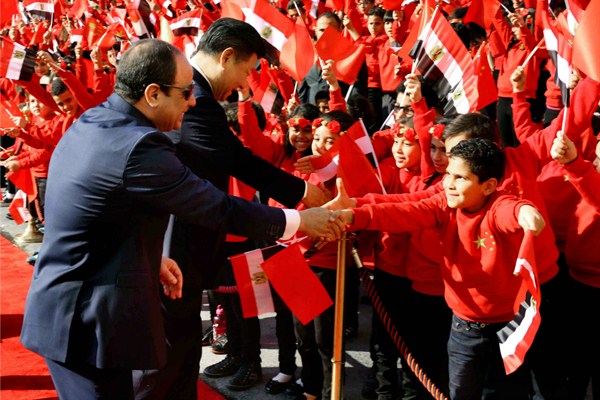As the Chinese government has worked to raise its profile in the Middle East, it has sometimes struggled to promote Chinese culture in the region. Despite its emphasis on cultural engagement since then-President Hu Jintao called for China to increase its global soft power in 2007, Beijing has found it difficult even to eclipse its Asian rivals. A young Arab man or woman might buy Chinese-made goods or even study abroad at a Chinese university, but he or she would be more likely to watch a Japanese film or listen to a Korean pop song than to consume China’s cultural output.
So it was surprising to see that businesses, municipalities and ordinary people across the Middle East celebrated the Chinese New Year holiday late last month on an unprecedented scale. In Cairo, revelers filled al-Azhar Park, the city’s largest public green space, which was adorned with giant inflatable roosters to commemorate the new year of the Chinese zodiac. Guests watched acrobatic and martial arts performances, learned Chinese calligraphy and paper-cutting, flew kites, painted Chinese opera masks, sampled different varieties of Chinese tea, and ate snacks from local Chinese restaurants. Gazing out from the main stage toward a row of Egyptian dignitaries sporting matching red silk scarves, the Chinese ambassador, Song Aiguo, told the crowd he felt like he was back in China.
Emiratis hoping to ring in the Year of the Rooster had several options. Abu Dhabi’s Ferrari World theme park staged a weeklong extravaganza featuring performances by a troupe of Chinese acrobats and a bamboo garden decorated with life-size models of pandas. Nearby, the Yas Mall decorated its main square in red lanterns and organized calligraphy lessons for its shoppers. In Dubai, guests at the Motiongate theme park were greeted by a Chinese Buddha, while visitors to Legoland were encouraged to join a project to construct 4,715 roosters out of Legos. Not to be outdone, the Dubai International Airport staged a traditional dragon dance in the middle of Concourse D.

